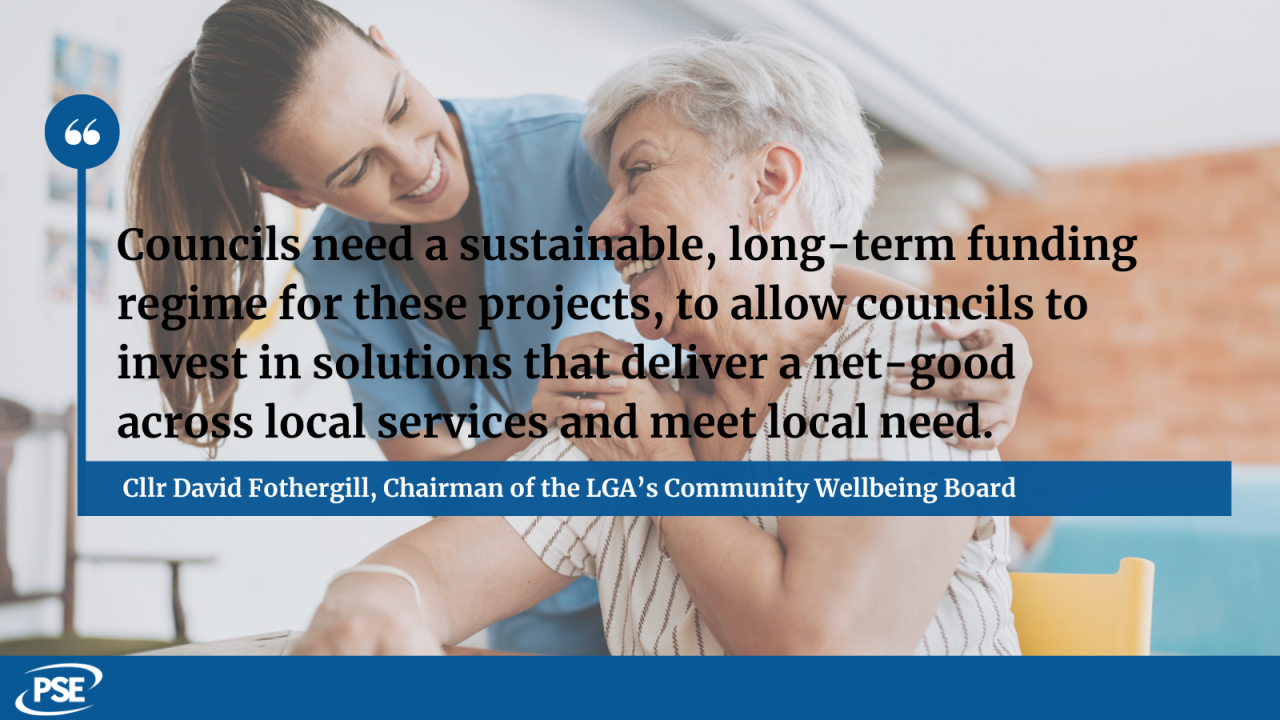Providing supported housing for older people and those with learning disabilities or mental health needs has the potential to unlock significant savings to the public purse, the Local Government Association has said today.
This comes after the LGA published new analysis from a series of councils indicating that supported accommodation can reduce the likelihood that residents will go to hospital or residential care. It also reduces readmissions.
The research includes case studies from
- Kirklees
- Bradford
- Medway
- North Somerset
- West Midlands
Autumn Budget action
Research in Bradford showed a saving of up to £47k per person to the NHS, while analysis in Medway indicated that 151 people with complex needs were helped into employment or training over a nine-month period.
The LGA has published the research ahead of the Autumn Budget as it is calling for chancellor Rachel Reeves to review how the government funds supported housing and to take into consideration a specific housing support fund to enable long-term investment.
Ringfenced funding for supported housing ended in 2011, which the LGA highlights has led to a reduction in quality and an increase in non-commissioned providers.

The LGA says that, while the Supported Housing (Regulatory Oversight) Act 2023 will help the situation, the government should kickstart investment in the preventative services that allow people to live their lives with more dignity and independence. Previous research has suggested that investing £1.6bn into supported housing would unlock savings of more than £3.4bn.
Further action needed
Chairman of the LGA’s community wellbeing board, Cllr David Fothergill, said: “Supported housing plays an enormous role in ensuring people who draw in care can lead the life they want to live. Suitable homes mean people can live more independently and participate meaningfully in their communities.
“As well as this, high quality supported housing means astounding savings across other public services. Councils need a sustainable, long-term funding regime for these projects, to allow councils to invest in solutions that deliver a net-good across local services and meet local need.”
It is also emphasised that this is only part of the solution and adapting people’s homes, investing in community support, and reducing isolation and loneliness are key ways of keeping people healthy and independent.
“But supported housing is just one element of prevention,” added Cllr Fothergill. “A new focus on preventative care and support is crucial in order to provide better services and significant savings across services.”
A recent LGA survey revealed that nearly a third of councils are concerned that they may not meet their duties under the Care Act next year, implying major funding boosts are needed for local authorities to meet their statutory requirements – investment in prevention, however, would cut costs in the long term.
Image credit: iStock



















